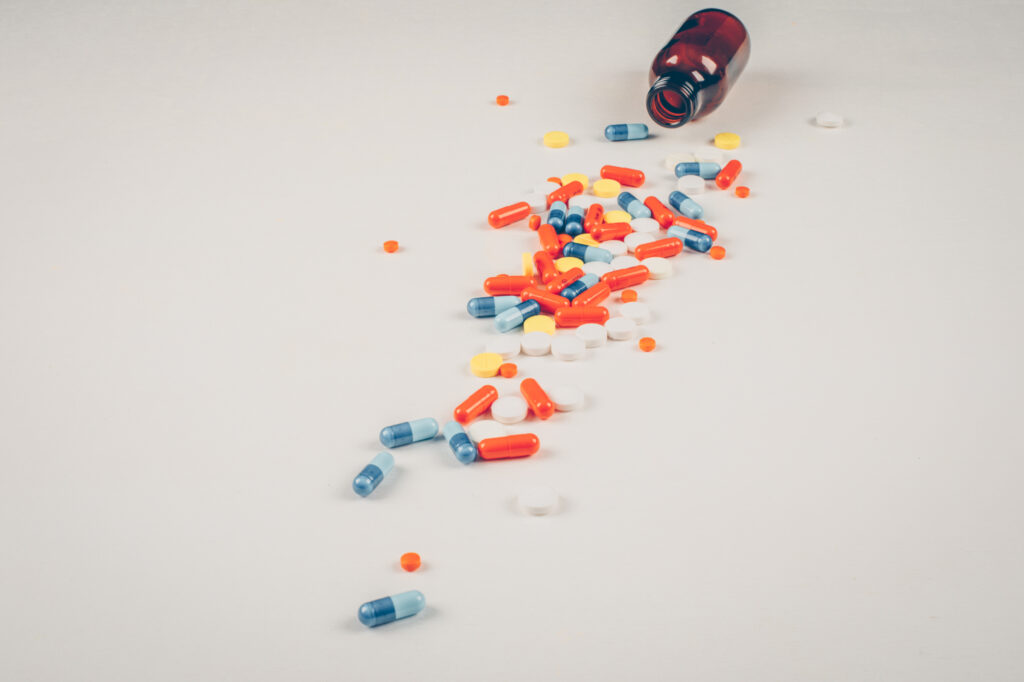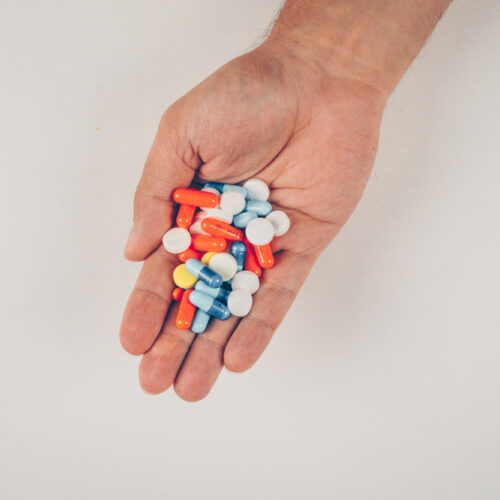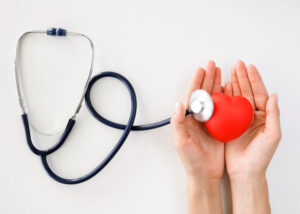
Suppose you are taking medicine to recover from a disease expecting to be sick with something else in the near future. Instead of improving, you become strange and unusual with some new symptoms contributing to your status. It might have resulted from drug interaction, an effect that really discourages your health. It is a society in which drug use and drug supplementation are equally a part of daily life, so there has never been a bigger need to educate us further on drug interaction. Now, let us learn this advanced but required subject and get accustomed to the mechanism of preventing harm.
Types of drug interactions
- Drug-Drug Interactions
These are the simultaneous administration of two or more drugs and their effect upon each other. Some drugs potentiate or antagonize the effect of other drugs or even induce further side effects. For example, warfarin (anticoagulant drug for blood) if taken with aspirin increases the risk of bleeding. Conversely, taking some antihistamines in combination with antidepressants induces extreme drowsiness. In others, drug interactions influence the liver metabolism of the drug and the efficacy of treatment.
- Drug-Food Interactions
Food consumed on a daily basis can interact with drugs. For example, when certain antibiotics are consumed with milk products, the drug’s absorption is restricted, and its effect is diminished. Additionally, grapefruit inhibits enzymes in the liver and increases some drugs’ levels in the body in an undesirable way. Certain of the high-vitamin-K foods such as spinach and cabbage inhibit anticoagulant effects. Therefore, utmost care must be taken in the quality of diet during treatment and work a long way in maximizing the efficacy of treatment.
- Drug-Supplement Interactions
The consumption of dietary supplements such as vitamins, minerals, or herbs also affects drugs. For example, iron supplements affect certain antibiotics such as ciprofloxacin’s drug absorption. Teagrass, a medicinal grass, can also make antidepressants or birth control pills ineffective. Calcium supplements can affect some heart medications such as digoxin Are. It is extremely important to tell your physician about supplement usage to avoid such interactions.
- Interactions with physiological states
Physiological conditions or certain disease, e.g., liver, kidney, or heart disease, may enhance drug interactions. For instance, renal failure patients might find themselves unable to eliminate drugs from their systems, thereby causing the body to retain the drug and consequently resulting in enhanced side effects. Moreover, diabetics on insulin need to consider other medication with a blood sugar effect. Pregnancy and lactation are also stages that make a patient vulnerable to drug interaction and require special caution.

Symptoms of drug interaction
Symptoms of drug interactions are very wide-ranging and quite complex in others, depending on what type of interaction it is and which medications you are receiving. Some of the most common symptoms are:
- Nausea and vomiting
One of the most common symptoms that can arise due to an increase or a decrease in the strength of the drug. It is also very common in food-drug and drug-drug interactions and may be an indicator of stomach and intestinal irritation.
- Headaches and dizziness
Use of drugs that are acting upon the nervous system, such as antidepressants or antihypertensive agents, will result in them. The symptoms happen quite often in elderly patients taking multiple drugs at the same time.
- Change of blood pressure
There are certain interactions that lead to a sudden drop or increase in blood pressure. For example, the ingestion of certain blood pressure-lowering drugs with diuretics can possibly contribute to an inadmissible drop in blood pressure and result in dizziness and syncope.
- Gastrointestinal disorders
Similar to abdominal pain, diarrhea, or constipation, which may be caused by changes in drug absorption or metabolism. Such conditions are expected to have a direct effect on the quality of life of the patient.
- Allergic reactions
These include hives, itching, or induced shortness of breath by drug interactions with other medications or simultaneous use of some of the supplements. Allergic reactions also cause anaphylactic shock at their extreme state, and that is a medical emergency.
Enhancement of drug side effects
Interactions in some cases enhance drug side effects. For example, simultaneous use of nonsteroidal anti-inflammatory drugs (NSAIDs) and corticosteroids promotes peptic ulcers.
Prevention of drug interactions:
- Have a word with a doctor or pharmacist
Even before you start taking any new medication, make it a point to have a word with your doctor or pharmacist and let them know about other medications, supplements, and herbs that you are taking. This one step will avoid many problems.
- Consultation with a drug brochure
Details of potential interactions are usually documented in the drug brochure. It is advisable that you read diligently from such brochures to have good counsel and stay clear of problems.
- Prevention of Inappropriate Use of Medication
Not adhering to medication based on a physician’s prescription may complicate the risk of interaction. Even over-the-counter medications can interact with other medications and harm you.
- Review of Meal Plan
Find out from your doctor what foodstuffs don’t mix with your medication. All the same, do not consume alcohol, since it can cause serious complications.
- Maintaining a list of drugs, supplements, and herbs
It is wise to have with you a list of your drugs, supplements, and herbs such that you will be able to give correct information in case you visit a doctor or chemist.
- Adjusting the timing of medication
There are some situations where risk of interaction is prevented by managing drug timing. For example, having one drug in the morning and another drug in the evening can prevent possible interaction.
- Official website use
You can prevent drug interaction on the web site Medscape: Drug Interaction Checker by inputting prescription medicine names, nonprescription drug names, and herbal products.

Final Thoughts
Drug interactions represent one of the most important, though in some instances difficult, treatment management roles with serious, even fatal, effect on a patient’s health. If left unchecked, such interactions have the potential to increase side effects, reduce the efficacy of treatment, and even lead to life-threatening complications. Preventive fear of such interactions, compliance with medication prescription, and adequate contact with your doctor and pharmacist prevent complications. Also, taking care of such basic guidelines like reading the drug guidebook, providing facts to your doctor, and altering the time of use can decrease risks by a huge amount. Complying with these regulations, you can enjoy safer and more effective treatment and maintain your health in the best way.
Resources








No comment yet, add your voice below!